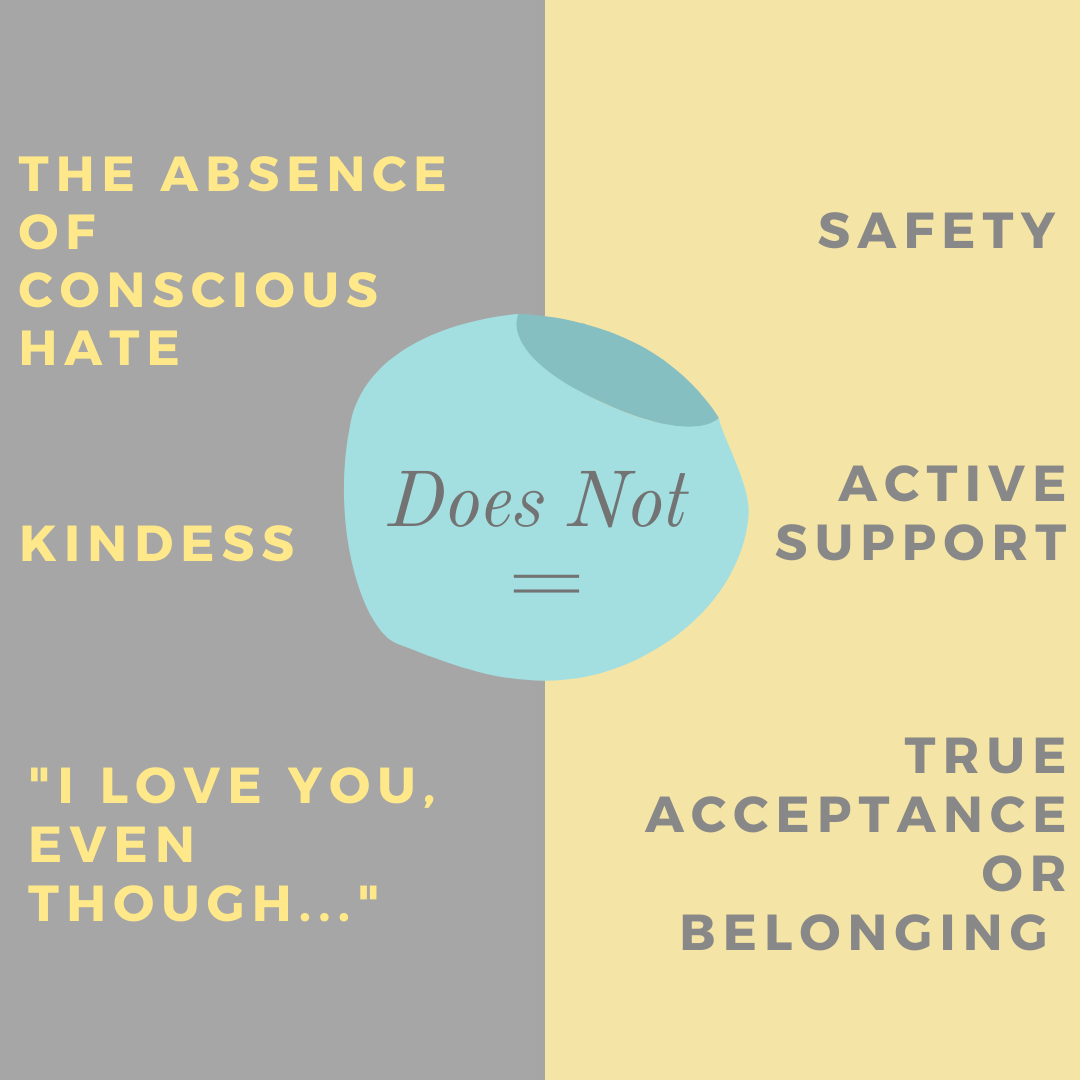"Not Hate" is Not Love
I recently heard someone say “I’ll sit down with anyone; they’ll find no hate here.” I’m glad this sentiment feels (hopefully) easy for most, and it’s one I’ve heard a lot, but it’s time to recognize that this is a low bar to clear.
I’d like to ask them: Have you done anything to demonstrate that they will be more than ‘not-hated’ by you? Why have you earned their basic trust?
There is a big difference between being ‘not-hated’ and being treated kindly, and an even bigger difference between being treated kindly and feeling like you are seen, safe, and supported:an unfortunately rare feeling for many individuals from marginalized communities.
What have you done to show that they are safe to be exactly who they are in your presence without judgement? How have you communicated to them that they won’t have to explain themselves, tiptoe around your fears, or have to speak up and ask for access that’s readily available to others? Have you done anything to show that you acknowledge and respect the unique challenges they may have faced because of their gender identity, race, religion, ethnicity, disability, or sexual orientation, and that you care enough to make this interaction a little easier than the hundreds of frustrating ones they've had before? These are questions I’ve been asking myself, and I hope to continue to do so for the rest of my life.
If you’re feeling like “my kindness doesn’t seem to be enough for people anymore”... you are probably correct. Kindness is wonderful. Real and active love of your neighbors requires kindness... and listening, learning, frequent reevaluation, and at least a little proactive effort. If someone does not feel safe or supported around you, that is on you, not them. Trust is earned by action and through experience.
Here are a few simple ways we can start to proactively love and earn the trust of our fellow humans: We can ask ourselves if our phrasing might be inadvertently exclusive before speaking or hitting send. We can look at our offices and websites and ask if they’re accessible for all people. We can consume content created by people with a different lived experience than ours and listen to their stories, instead of projecting our own experiences onto them. We can put our pronouns in our bios. If we don’t understand what something means or why it matters, we can ask someone we trust (I’m happy to be this person for you, and if I don’t have an answer, we’ll learn together). And when we stumble (when...not if), instead of blaming the person or group we may have hurt even indirectly, we can take the time to understand their perspective, learn, and apologize wholly because impact matters more than intention.
Many voices are long overdue for amplification. The more we listen to these voices, the more we’ll learn that while these are simple places to start, it doesn’t end here. Where our money, votes, time and attention go matter a great deal. You have no idea on whom your small actions may have a big impact….for better or worse.
Creating an environment devoid of hate is good, necessary and appreciated...and... creating an environment of understanding and enthusiastic support for under-supported individuals is a more active way to contribute more love into the world.
And who doesn’t care about contributing more love?
